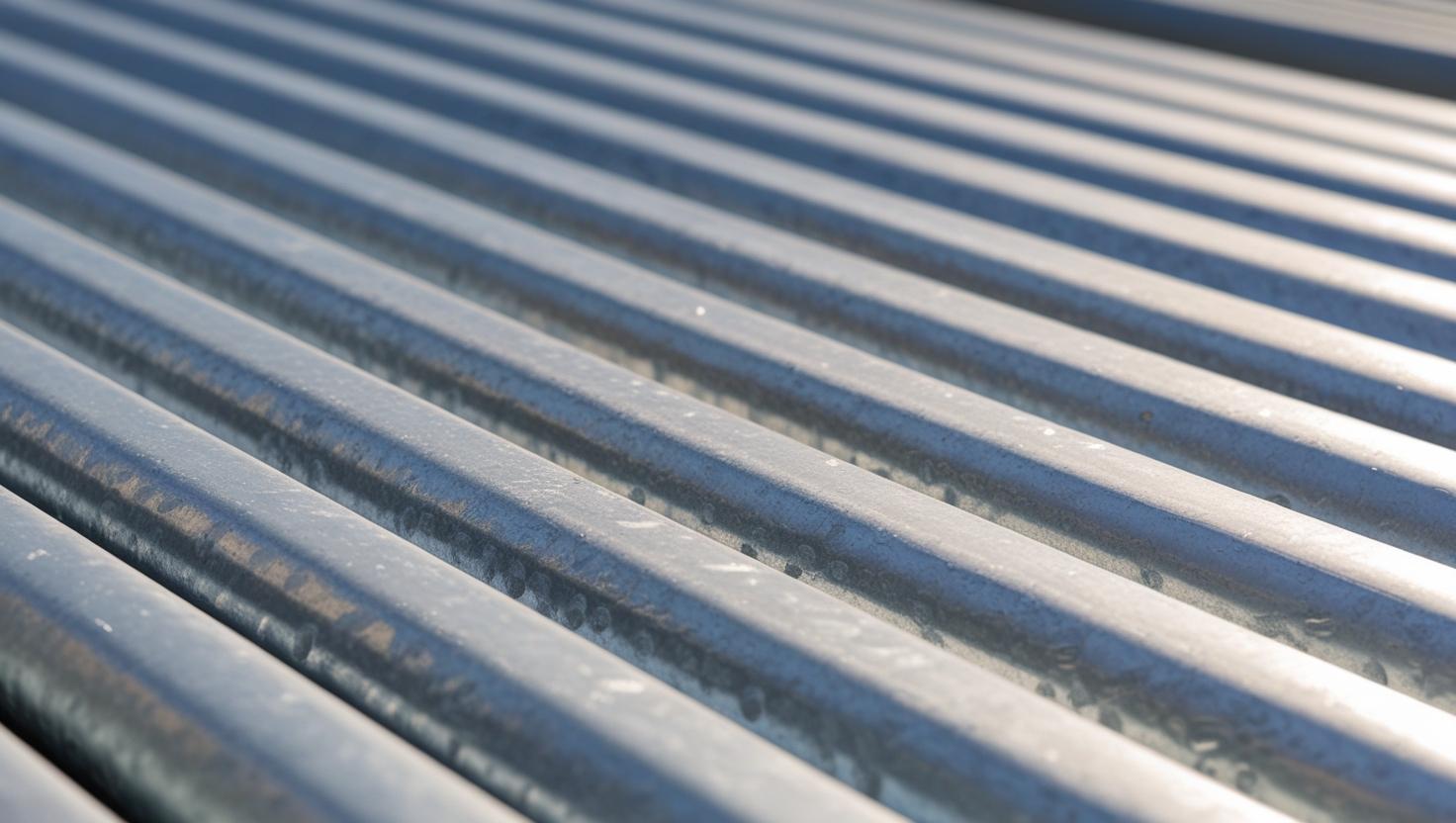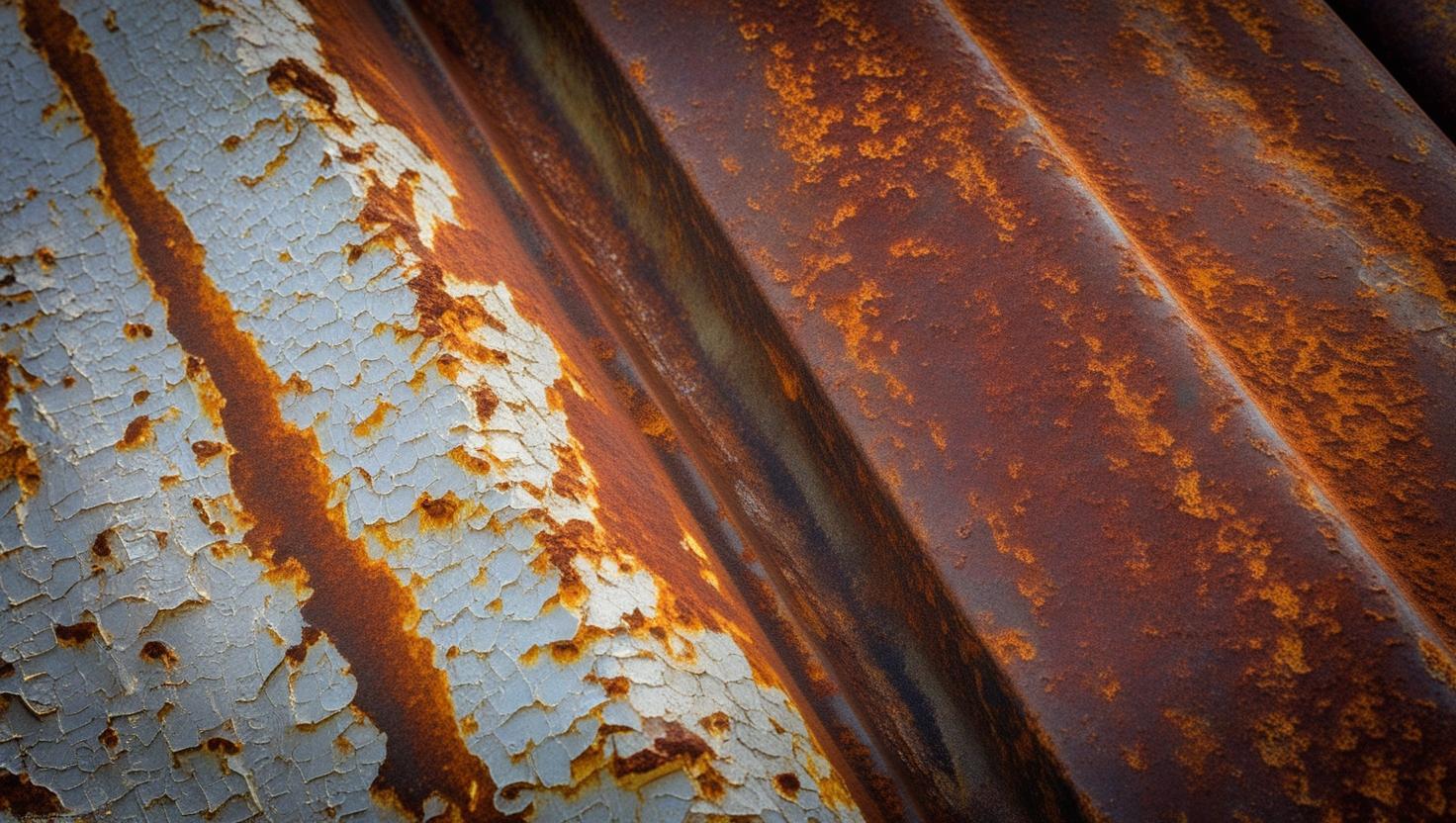Because it resists corrosion, this iron product finds use in industries, building, and other stiff applications. Although, one question that comes up a lot is “does galvanized steel rust?” In order to understand this issue, we must first look at the definition of galvanized steel, its manufacturing process, and the conditions that cause corrosion.
Qu'est-ce que l'acier galvanisé?
Galvanized steel can be described as steel that has been covered in a layer of zinc for the purpose of avoiding rusting. The zinc layer covers the surface of the steel and protects the steel material from moisture and oxygen as it provides them a barrier. This process of adding a layer of zinc on the surface of steel makes it suitable for use in areas that can cause rusting.

Types of Galvanizations
There are two categories of galvanization:
- Hot Dip Galvanizing:A steel object is immersed into bath containing molten zinc, in the temperature range of 840°F (450°C). The high-temperature characteristic enables the zinc material to adhere well on the surface of the steel to form a rigid layer of zinc on the steel part.
- Electro-Galvanizing: The is a process that involves an electric current to forming a layer of zinc on the steel. It is more suitable for complex shapes and has a better appearance than hot-dip galvanizing, cependant, it yields less thickness of zinc coating as compared to the latter.
How Galvanization Works
Galvanized steel is covered with a thick layer of zinc which is more reactive than iron and can protect itself from rust by forming an oxide of zinc on it, when in the contact with oxygen.
Here’s how it works:
Barrier Protection
Zinc is more effective because it forms a barrier through which no moisture and oxygen can penetrate to the steel surface.
Galvanic Protection
Actually, even if the zinc layer is removed by scratches or in any other way, the zinc layer will still protect the steel through a method known as galvanic protection. Zinc is more reactive with the air than steel and as a result, it is used with steel to corrode in place of the steel so that the steel does not corrode.
Does the Galvanized Steel Corrode?
There are three predetermined circumstances that bind to cause rusting after some time:
Exposure to Harsh Environments
Unlike regular steel, galvanized steel does not easily rust as the outer layer has zinc; nevertheless, after a long time, the zinc layer begins to breakdown. There are some factors that shall accelerate the corrosion such as regions near the coastal line where there are salty contents, the areas with pollution products from industries, or even areas where rain water is acidic.
Damage to the Zinc Coating
Zinc loses its protecting characteristics for steel when it has dent or any type of hole, which allows the metal underneath to be exposed. When the area that has been damaged is not refinished or re-coated, the steel part is vulnerable to rusting.

Age and Wear
In the long run, the zinc atoms can be eroded by the elements and rubbing on the metal surface. Ainsi, every time the coating layer gets reduced, the steel is exposed to rust and will rust further. The wear spots of the zinc layer can be discovered by carrying out routine maintenance and inspection of structure.
Factors Affecting the Longevity of Galvanized Steel
The following are considerations that affect the duration that will elapse before the galvanized steel starts rusting:
Thickness of the Zinc Coating
The thickness of the zinc layer significantly dictates the longevity of the galvanized steel. En général, hot-dip galvanized steel has more thickness of the zinc coating, and therefore it is more protected than electro-galvanized steel.
Quality of the Galvanization Process
The quality of the galvanization depends with the kind of galvanization for adhesion of the zinc layer and its thickness. Correctly galvanized steel should have uniform and well-adherent zinc coating in order to offer optimum protection against rust.
Environmental Conditions
If steel is placed in active condition, it will rust more than the steel placed in a less active condition.
Entretien et soins
Cleaning the surface of the item helps to eliminate particles that rise over the surface in form of dust or debris which hinders the effectiveness of the zinc coating.
Practical Applications of Galvanized Steel
This is due to its ability to resist rust and therefore applied in several fields:
Construction
To start with, galvanized steel can be used abundantly in construction for purposes like framing, roofing, as well as cladding. It is a long-lasting material that can be used for internal and external environment.
Automotive
Some parts of automobiles like the exhaust system and vehicle body panels are made up of galvanized steel in order to avoid rusting and to increase its durability.
Outdoor Structures
Iron products like fences, gates and some outdoor furniture needs a protective layer against rust; donc, the process of galvanization acts as a solution.
Agricultural Equipment
It is used extensively in the production of equipment and storage structures in the agricultural sector since it is strong and will not be easily affected by the presence of moisture or tough weather conditions.
